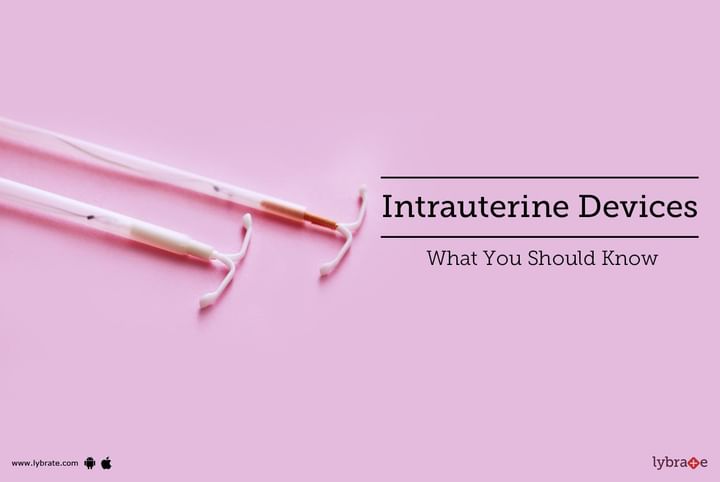Get the App
For Doctors
Login/Sign-up
Last Updated: Jan 10, 2023
BookMark
Report
Intrauterine Devices: What You Should Know
Intrauterine devices or IUD are T shaped contraceptive devices. These contain levonorgestrel or copper and are inserted into the uterus. IUDs are considered to be one of the most effective birth control measures and also they are reversible (meaning it can be removed whenever a need arises). The copper IUd has a failure rate of 0.8%, while the levonorgestrel IUD has only had 0.2% failures till now. As per a report in 2007, IUDs are used by more than 180 million users all over the world.
What you should know about Intrauterine devices:
- Types of IUDs: There are 2 types of IUDs Copper and Hormone: Copper IUD is considered to be the conventional form of the contraceptive. It is T shaped with strings and is inserted into the uterus by a doctor. It can remain in the body for three to five years. Minera is a known brand of the hormone IUD. It contains low dose of hormone progestin and releases the same when inserted in the uterus. This is also T shaped and has strings. This can be left for three years.
- Pelvic infections are not caused by IUDs: There is a belief that IUDs cause pelvic infection but this is not true. The strings of the new IUDs are very thin and they do not cause any pelvic infection even if a person is suffering from a sexually transmitted infection (STI). Though there might be a slight risk of infection when the IUD is inserted and in the first 20 days, but that also dissolves soon.
- IUD can be used at any age: Earlier IUDs were not recommended for women who had never got pregnant. However, now anyone can use these irrespective of being pregnant or not. It is very safe for all age groups from teenagers to women involved in active sex to women post menopause.
- IUD is as effective as getting a tubal ligation: It is believed that Minera is 99.4% effective while sterilization (tubal ligation) is 99% effective in preventing a pregnancy. Ligation is considered to be a permanent birth control solution, while IUDs can be reversed.
- IUDs do not cause infertility: It was believed that a STI would creep into the pelvis through the string of the IUD and cause infertility but this is not so. Though a STI can cause infertility but the IUD has no role in the same and does not contribute or worsen the infection.
- Hormonal IUD have less side effects than birth control pills: Breast tenderness, acne, and bleeding for a short time may persist for the initial 3-4 months in case of hormonal IUDs. The copper IUD lead to cramping and heavy flow during menstruation. If you wish to discuss about any specific problem, you can consult a gynaecologist and ask a free question.



+1.svg)
